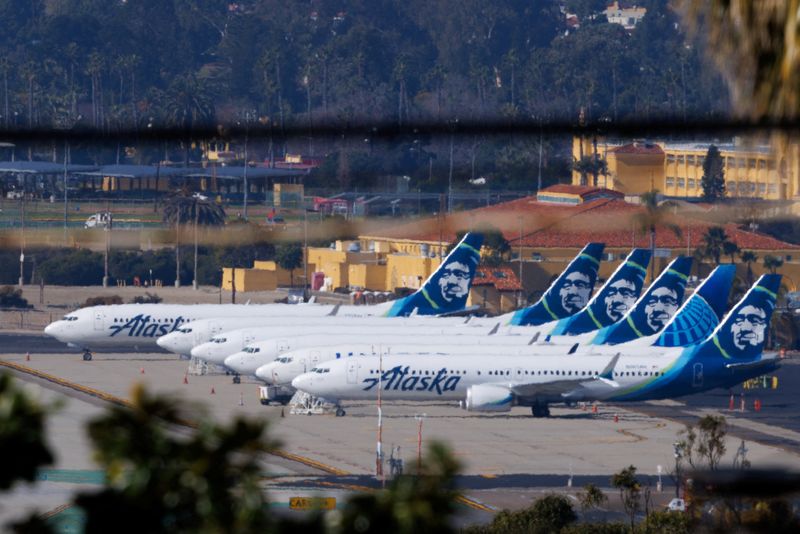By Shivansh Tiwary and Rajesh Kumar Singh
(Reuters) -Alaska Air Group on Thursday forecast stronger-than-expected earnings in the current quarter on the back of a pickup in business travel demand, sending its shares higher.
The airline, the operator of the Boeing (NYSE:BA) plane that suffered a mid-air cabin blowout in January, also reported a smaller loss in the first quarter, despite a $162 million impact from the more-than-two-week grounding of its 737 MAX 9 aircraft.
Alaska's shares were up about 5% at $44.95 in morning trade.
In an interview, Chief Financial Officer Shane Tackett said while leisure travel demand remains strong, corporate travel spending is now gathering steam.
"Business travel is better than we expected," he told Reuters.
Other U.S. carriers have also reported a pickup in corporate travel, which is seen as a cash cow for the industry.
As a result, Alaska expects the outlook for the remainder of the year to be more stable that it had predicted coming into the year, Tackett said.
The airline now expects full-year earnings to be in the range of $3.25 to $5.25 a share, an upgrade from $3 to $5 a share, Tackett said.
However, Tackett also flagged higher fuel costs as a concern for the company. Alaska suspended its oil hedging program late last year as its hedges were not able to protect it from refining margin volatility.
Tackett said the airline would examine if re-starting the hedging program makes sense.
The company reported an adjusted loss of 92 cents per share in the March quarter, compared with analysts' average estimates for a $1.05 loss, according to LSEG data.
But for the grounding of the MAX 9, it would have reported a profit of 3 cents a share for the quarter, which is traditionally its weakest quarter. Boeing has fully compensated the company for the grounding in cash.

Tackett said Alaska has deployed more of its inspectors at Boeing's factories since the January incident to ensure the jetmaker produces the highest quality aircraft that it can confidently fly safely.
Alaska forecast a second-quarter profit of $2.20 to $2.40 per share, compared with Wall Street's estimates of $2.12.